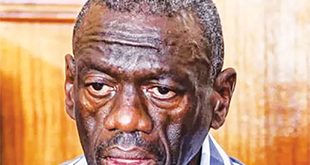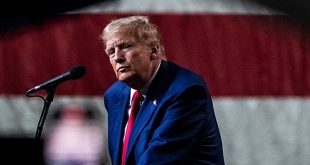
By Andrew M. Mwenda
African intellectual elites personalise their analysis even as they accuse African leaders of personalising the state
On Jan.1, I went to Nsambya Hospital in Kampala where my cousin was hospitalised. The hospital is owned and run by the Catholic Church. The buildings many of which were constructed in the 1960s are now old and murky, with little renovation since. The wards are crowded, nurses underpaid, the doctors struggling to meet pressure and the gardens are overgrown. This is the same thing I have witnessed in Mengo, Rubaga, and other non-government Church-led health facilities. Even at International Hospital Kampala (IHK) and Nakasero Hospital, owned by private investors and a bit better managed, I see many weaknesses and incompetence.
So what caused the collapse of Uganda’s healthcare system that in the 1960s was the pride of Africa? To many observers, including myself, this is because of President Yoweri Museveni’s mismanagement of the public sector. He has presided over the most corrupt government in Uganda’s history. Under him the public sector has been characterised by corruption, incompetence, indifference and apathy. His government lacks a collective vision. Instead, it has become largely (but I admit not entirely) a springboard for private profiteers involved in near anarchical grabbing of public resources.
But if Museveni is the cause of the collapse in the quality of the public sector, who is the cause of the collapse in the nongovernment health sector? Why is there little or no difference between Nsambya and Mulago? Why is Kampala International University actually worse than Makerere University? In the 1990s, government surrendered management of all church and mosque built schools back to their founders and continues to aid them – Mwiri, Nabingo, St. Leos, Kibuli, Mbarara High, Nabumali, Layibi, Nyakasura, Bukumi, Makobore, etc. But they have not transformed into the centers of excellence these schools were in the 1960s. Why?
I admit that some private schools like Kampala Parents are of international standards. It is also possible that you need an effective state to ensure effective regulation to enforce standards in private education and health facilities. But the state of any country can only reflect the character of its society. If today’s cash and carry state reflects our society, what did the state of the 1960s reflect? Did it reflect the legacy of the departed colonialist?
I raise these questions because I think there may be a wider societal problem in Uganda that most public debate ignores. To demonstrate this, let us assume someone is making an analysis of contemporary American foreign policy. He argues that the problem with American presidents is that they have an insatiable desire to invade or bomb other countries. Every American president since the end of the Second World War, perhaps with the sole exception of Jimmy Carter, has invaded or bombed some country. The analyst argues that even Barack Obama who came to power promising to end America’s foreign military entanglements ended increasing troops in Afghanistan (during his first term), bombing Libya, Pakistan, Somalia and Yemen, returning on another round of bombing in Iraq and is now bombing Syria.
“American presidents are blood thirsty men,” the analyst argues, “they just cannot control their instinct to invade countries, bomb others, murder innocent civilians, assassinate leaders they don’t like, sponsor terrorism against governments they disapprove of and worse. They preach human rights and democracy to others while their own ethnic minorities are killed by police – sometimes caught on camera – but their judicial system lets the police free.”
There is nothing wrong in the facts stated above. But is America’s tendency to invade and/or bomb other countries driven purely by the personal character traits of individual presidents – of them just being psychopaths with a thirst for human bloodletting? How can it be that 11 out of 12 US presidents since 1945 have done similar things at home and abroad? Doesn’t this suggest that there are conditions in America (its military-industrial complex, for example) and its position as a global superpower (which makes it the world’s policeman) that drive US foreign military adventures that are beyond the personal character traits of individual presidents?
I have increasingly become skeptical of my own earlier views that always tended to analyse contemporary politics in Uganda – and Africa – from the prism of the personalities and machinations of individual presidents on the continent. Whenever something happens in Africa, we reduce it to the personality of an individual president or their collective behavior. If a country seeks to amend the constitution to remove term limits on the presidency, it is because the incumbent is a selfish and greedy individual only interested in staying in power. If corruption becomes widespread, it is because the president is corrupt himself or condones the practice. If there is institutionalised incompetence, indifference and apathy in the public sector, it is because the president does not care about services to the citizens.
Is the explanation this personal? If the problem boils down to the personality of individual presidents, why are all the 49 nations of Sub Sahara Africa (except Botswana and Mauritius) in the same development predicament? Aren’t these similarities a reflection of bigger structural causes? Why would Museveni criticise Milton Obote and repeat the very misdeeds he condemned? And it applies to Fredrick Chiluba towards Kenneth Kaunda in Zambia and Laurent Kabila towards Mobutu Sese Seko in DRC, etc.
If the failure of Uganda to have the per capita income of South Korea is because of Obote, or Idi Amin (as Museveni thought), why haven’t any of the other 49 countries (again except for Botswana and Mauritius) turned like South Korea? Our continent has had many changes of leaders (Nigeria, 11; Ghana, 9; Uganda 9, Kenya 4, Sierra Leon 11 etc). But it has not produced that hero-president who created an economy that in turn produced global brands like LG, Samsung and Hyundai. Of course arguing like this makes me sound like I am creating excuses for Africa’s leaders.
It seems to me that all too often, we African intellectual elites moralise, we don’t analyse; we make political slogans to condemn, but we don’t seek to understand our societies. We look for quick, easy stereotypical explanations for complex problems. Without the right diagnosis of the problem, we cannot even begin to craft the right remedy. So we always pick textbook theories copied from the experience of others thinking naively that they can work for us as well. That is Africa’s problem.
amwenda@independent.co.ug
 The Independent Uganda: You get the Truth we Pay the Price
The Independent Uganda: You get the Truth we Pay the Price


